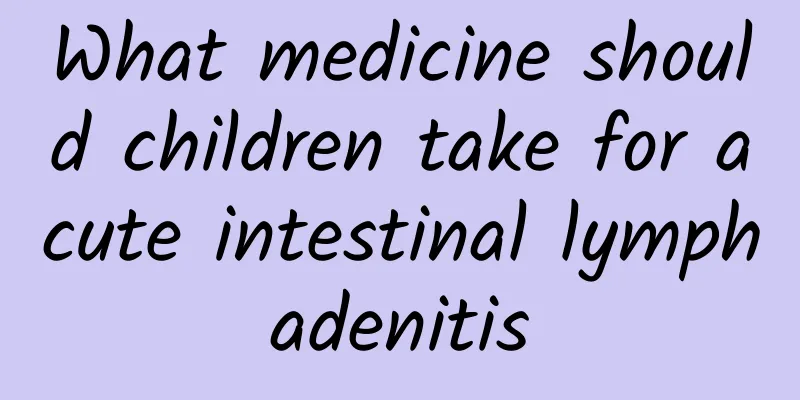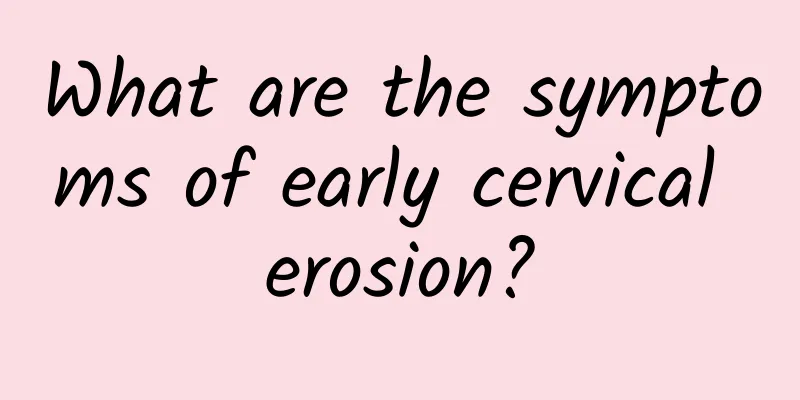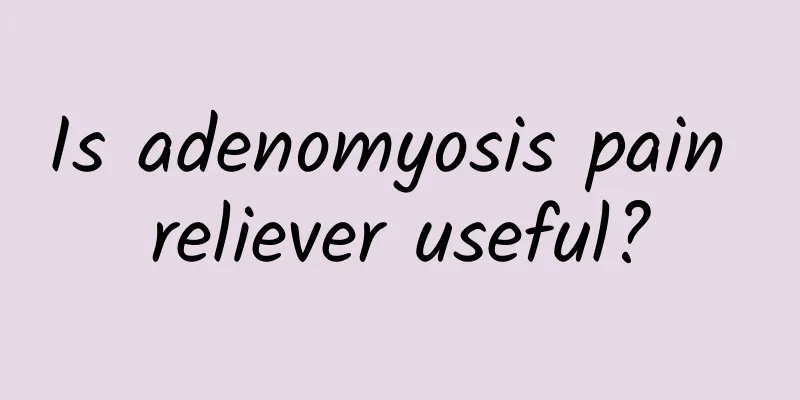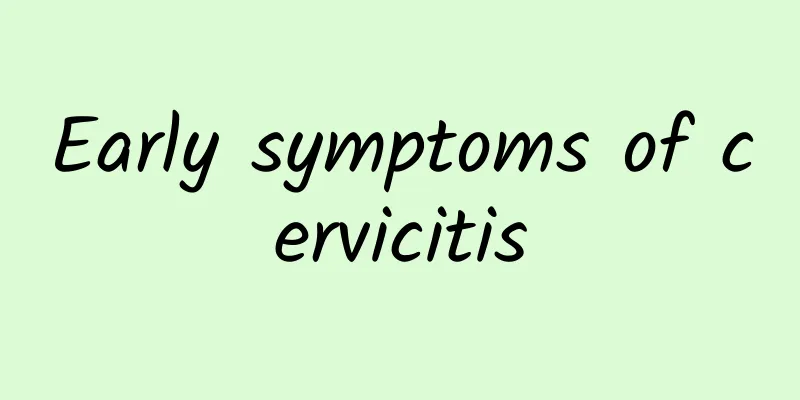What medicine should children take for acute intestinal lymphadenitis

|
The treatment of acute intestinal lymphadenitis in children requires the selection of drugs according to the severity of the disease. Commonly used drugs include antibiotics, antipyretics and analgesics, and probiotics. During treatment, attention should be paid to dietary conditioning, avoiding irritating foods, and drinking more water and easily digestible foods. 1. Antibiotic treatment Acute intestinal lymphadenitis is mostly caused by bacterial infection, and antibiotics are the main treatment. Commonly used drugs include amoxicillin, cefaclor and azithromycin. Amoxicillin is suitable for mild infections, cefaclor is more effective for moderate and severe infections, and azithromycin is used for children who are allergic to penicillin. When using antibiotics, follow the doctor's advice and avoid abuse. 2. Antipyretic and analgesic drugs Children often have fever and abdominal pain, and antipyretic analgesics can relieve symptoms. Commonly used drugs include acetaminophen and ibuprofen. Acetaminophen is suitable for children with low fever, while ibuprofen is more effective for high fever and severe abdominal pain. Pay attention to the dosage when taking the medicine to avoid overdose. 3. Probiotic conditioning Antibiotics may disrupt the balance of intestinal flora, and probiotics can help restore intestinal health. Commonly used probiotics include bifidobacteria, lactic acid bacteria, and Saccharomyces boulardii. Bifidobacteria can enhance immunity, lactic acid bacteria can help digestion, and Saccharomyces boulardii has a good effect on diarrhea. Probiotics can be taken 2 hours apart from antibiotics. 4. Diet adjustment During treatment, the diet should be light and easy to digest. Recommended foods include rice porridge, noodles, steamed eggs and cooked vegetables. Avoid spicy, greasy and cold foods. Drink plenty of water or light salt water to replenish electrolytes. Eat small meals frequently and avoid overeating. 5. Medical advice If the child has persistent high fever, severe abdominal pain, vomiting or dehydration, he/she should seek medical attention immediately. The doctor will adjust the treatment plan according to the condition and perform infusion or hospitalization if necessary. Parents should closely observe the changes in the child's condition to avoid delaying treatment. The treatment of acute intestinal lymphadenitis in children requires a combination of medication and diet. Antibiotics, antipyretics and analgesics, and probiotics are commonly used drugs. The diet should be light and easy to digest, and irritating foods should be avoided. If the symptoms worsen or persist, seek medical attention in time. Parents need to take medication according to the doctor's orders and pay attention to changes in the child's condition to ensure the treatment effect. |
<<: Abnormal yellow leucorrhea with odor and itching
>>: Can external hemorrhoids cause abnormal vaginal discharge?
Recommend
Experts explain what patients with adnexitis should pay attention to
Adnexitis is a stubborn gynecological disease tha...
There are some tips to prevent threatened abortion
Many female friends will encounter many problems,...
Why do ovarian cysts occur?
Why do people get ovarian cysts? Many women with ...
What to do if you have menstrual pain
What to do if you have menstrual pain? Abdominal ...
What is the cause of female pelvic effusion?
What is the cause of pelvic fluid accumulation in...
Symptoms of cervical hypertrophy need attention
In life, there are more and more patients with ce...
What are the signs of unexpected miscarriage?
Many women who are pregnant early do not want chi...
Is it better to see a Chinese doctor or take Western medicine for irregular menstruation?
Is it better to see a Chinese doctor or take West...
How to distinguish miscarriage and menstruation, and what are the types of miscarriage?
Many female friends have spontaneous abortions in...
What are the causes of uterine fibroids? What are the causes of uterine fibroids?
What are the causes of uterine fibroids? What are...
How to conservatively treat ectopic pregnancy?
Ectopic pregnancy is a common gynecological disea...
How to take care of your body after miscarriage
Women who have failed to take contraceptive measu...
30 years old is the high-risk age for uterine fibroids
Women over 30 are at high risk of uterine fibroid...
How to treat cervicitis and cervical hypertrophy completely
Cervicitis and cervical hypertrophy are generally...
What are the causes of ectopic pregnancy?
Many women panic and don’t know what to do after ...









